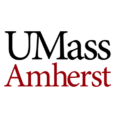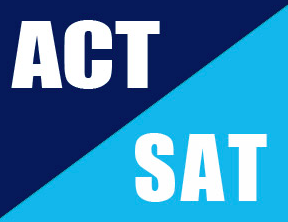Students with learning differences (LD) including Attention Deficit/Hyperactivity Disorder (ADHD) and their parents, while taking into account grades, scores, goals, and preferences like other students and parents navigating the college admissions process, should also take time to investigate special college programs and to provide supplementary application materials to colleges if students are to have the most positive four year experience. To that end, and with the help of Peterson’s Colleges for Students With Learning Disabilities or AD/HD, let’s elucidate the research/application process for students and parents and answer two key questions:
What do you need to prepare and organize?
What should you be looking for when reviewing your college options?
The More Documentation The Better
Unlike when applying to or dealing with high schools, students with LD/ADD must provide more documentation than just an IEP (Individualized Education Program) or 504 Plan (a program of instructional services to assist students with special needs who are in a regular education setting) when applying for special support programs at colleges and universities. For the best chance at getting the resources you need for four years, get ready to provide most (if not all) of the following documentation (in addition to any college-specific requirements) in order to give yourself the best shot at receiving the most comprehensive accommodations available at colleges on your list:
- A Diagnostic Statement Identifying Condition(s)
Classification codes should be from the most up to date editions of the Diagnostic Statistical Manual (DSM) or the International Classifications of Disease (ICD). Original diagnosis dates along with most current evaluation dates should be included
- Current Functional Impact of the Condition
Detailed results from formal and informal tests should be sent in the form of both raw results and narrative explanations
- Treatments, Medications, and Assistive Devices/Services Currently Prescribed or In Use
In addition make sure to include detailed information on any side effects resulting from such methods
- The Expected Progression or Stability of The Impacts Described Over Time
- Recommended Accommodations And Services
- Credentials of The Evaluator
A brief description of the evaluator’s experience is also helpful
The Best Psychoeducational Batteries Include 5 Key Components
- Adult Referenced Testing
- A Measure of Aptitude
- A Standardized Measure Of Academic Achievement
- Measures of Cognitive Processes Impacted
- Clinical Observations
What About Your Evaluation of Colleges?
Enough about you! How do you find the colleges that will be most receptive and accommodating to your needs? It’s up to you to figure out what types of support you are going to need for four years in college, but keep in mind you will be in a new environment, so you may want to err on the side of more support. Four-year colleges can be nicely broken down into two categories depending on how they deal with LD/ADD students.
The first type of college has what can be referred to as “Aggressive/Structured” Programs. These colleges go beyond what is mandated by law to support their LD or ADD population and as a result often include extra fees and separate admissions processes for students with LD/ADD. In some cases, these schools have an entire department or program devoted specifically for LD/ADD students. This translates into support at almost every stage of your undergraduate educational experience.
The second type of college has what can be referred to as “Passive/Self-Directed” Programs. These colleges will require LD/ADD students go through the same process for admissions as everybody else, rarely charge extra fees, but as a result also rarely monitor the student’s progress or performance. Depending on the college, different offices or multiple offices may be tasked with supporting the LD/ADD student, but the student will be responsible for acting as the conductor.
What does all this mean in practice? Well, different things at different colleges, even within colleges that advertise similar services. The best place to begin your search it to look at three very different size colleges (briefly described below) that provide top of the line “Aggressive/Structured” Programs. As you search, remember to compare and contrast services at the three colleges. Once you want to expand your search to more colleges, refer back to the pros and cons of these three colleges when formulating questions to ask of college officials.
The general idea is: Even if you can’t buy the Rolls Royce, you want to see how many of the add-ons of a Rolls Royce are available in other cars, so look at the Rolls Royce first so you will be comparing all future cars to it. You may find you don’t need or want “Aggressive/Structured” Programs, and will look at only at “Passive/Self-Directed” Programs. Or you may find you would be successful at either type of college, and therefore include both types on your list. Visit college websites, and as your search becomes more serious, visit the colleges.
**Note: Just because a college is not summarized below does not mean it is not a great destination for LD or ADD students. In fact, some of the smallest, most obscure colleges specialize in offering programs for LD or ADD students (Mount Ida, McDaniel, Mitchell, and Beacon), while some of the most well-known colleges also offer “Aggressive/Structured” Programs (George Mason University, American University, and Hofstra University). Good Luck with your search!
Large
University of Arizona
Tucson, Arizona
The Strategic Alternative Learning Techniques (SALT) Center
http://www.salt.arizona.edu/
520-621-8493 or 520-621-1427, ask for assistant director of admissions or head of LD program
University of Arizona in beautiful and hot Tucson, Arizona is the largest school on this list with around 34,000 students. The school has a generally numbers-based admissions process. Most importantly, Arizona’s fee-for-service Strategic Alternative Learning Techniques (SALT) Center provides students with Learning Differences a way to focus their course of study and not get lost amidst all the hustle and bustle of such an exciting and busy campus as Arizona’s. 500 undergrads are served by SALT, which has roughly 22 full-time staff members including tutors, graduate assistants, tutors, and specialists. A mandatory one-day orientation is required before classes start. Tutoring (one-on-one and group) is provided in most subjects. According to its Website, “SALT students receive individualized educational planning and monitoring, assistance from trained tutors with course work, and an array of workshops geared toward the individual academic needs of these students.” Students must apply directly to the program and fees range anywhere from $1,600 – $4,000.
Medium
University of Denver
Denver, Colorado
The Learning Effectiveness Program (LEP)
http://www.du.edu/disability/lep/index.htm
303-871-2372, ask for head of LD program or director of University disability services
Out west like University of Arizona, but further to the north, is the University of Denver. Why the University of Denver? Denver, with roughly 6,000 students offers one of the most comprehensive programs in the country for students with learning differences. The fee-for-service Learning Effectiveness Program (LEP) has roughly 11 full-time staff members and serves roughly 200 undergrads each year while also providing “a variety of services designed to support each student’s academic experience, including individual academic counselors, tutoring, and organizational and study strategies specialists.” The LEP philosophy emphasizes student responsibility, self-awareness, and self-advocacy. At its core LEP strives to empower students to develop the skills needed to attain academic and personal success while at DU and beyond. Tutoring is available in all subjects, either one-on-one or in groups.
Small
Lynn University
Boca Raton, Florida
The Institute for Achievement and Learning
https://www.lynn.edu/academics/individualized-learning/institute-for-achievement-and-learning
561-237-7900 or 561-237-7881, ask for head of LD program or executive director of the IAL
Lynn University in sunny and warm Boca Raton, Florida offers arguably the best program for bright, sociably independent students with learning differences. Lynn’s Institute for Achievement and Learning comprehensive support program serves several hundred of the school’s 2,000 undergraduate students and has a staff of 11 full-time employees and 35 part-time employees. Staff includes tutors (tutoring is available in all subjects), LD specialists, and diagnostic/learning specialists. A two-day orientation is mandatory before freshman year. It provides tutoring by professional tutors in all subjects. The more support needed by a student, the greater the cost; however, this is one university where the higher price tag is worth it.
—
For more information, please contact the colleges directly.
For a full directory of special programs for LD/ADD students, a good first stop is Peterson’s Colleges for Students with Learning Disabilities or AD/HD.




